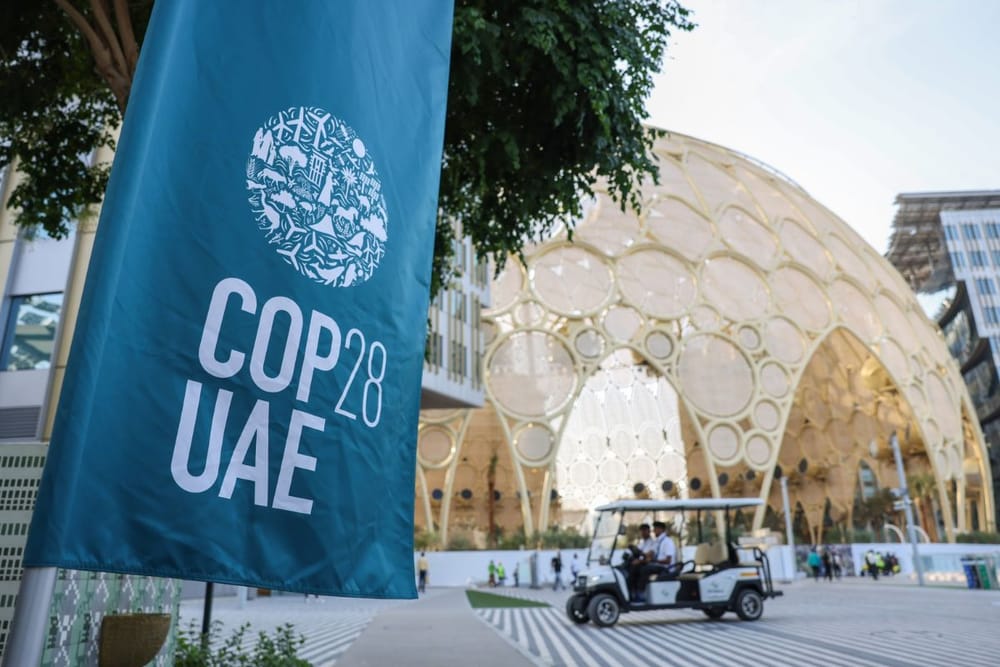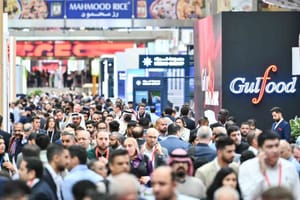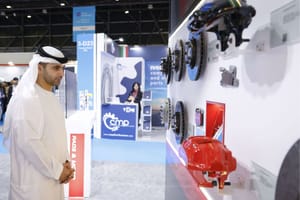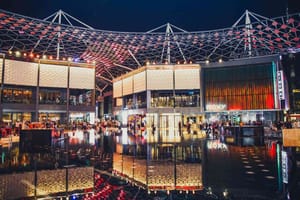We went beyond the numbers, presentations, and technical reports, and captured the mood and perspective of actual people on the ground
COP28 concluded on Wednesday with a historic consensus by all 198 Parties to accelerate climate action. The past two weeks saw headlines dominated with phrases such as global stocktake; climate justice; transition from fossil fuels to reach net zero; the 1.5°C North Star, shuttle diplomacy; orderly energy transition; fixing climate finance, and more.
We broke down the jargon and presented stories our readers can relate to and be inspired with to take action. We went beyond the numbers, presentations, debates, technical reports and plenary sessions — our reporters captured the mood and perspective of actual people on the ground at the UN Climate Summit.
Here are the Top moments that defined COP28 UAE:
'Clear, open, clean, honest and transparent'

Allegations were made that the country had conflicting interest and had 'planned oil deals' during climate summit. COP28 president Dr Sultan bin Ahmed Al Jaber made it clear from the outset that the UAE has always been “clear, open, clean, honest and transparent”. He pointed out
“the country has – for over 50 years – been building bridges, creating partnerships and establishing relationships to create win-win relationships.”
He debunked the allegations and addressed the critics by remaining focused on his North Star, and that is keeping 1.5°C within reach. And – to answer the critics and start COP28 on high note – in the first hour of Day 1, the Presidency facilitated a historic agreement to bring into operation and capitalise funding for Loss and Damage.
The UAE laid the ground with a whopping $100 million contribution, and a total of $792 million has been pledged to date to support those on the front lines of the climate crisis. The Emirates immediately scored in Round 1.
Climate justice and ceasefire

We spoke with climate activists. They made it clear that climate justice and protecting human rights are connected. Around 2,000 of them march on COP28 grounds calling for immediate ceasefire in Gaza.
"It will be the height of hypocrisy if we call for just transition to clean energy if people are actually dying in refugee camps and hospitals, or we see our lands laid to waste in ashes and painted by blood,”
noted US-based Palestinian poet and activist Tariq Luthun.
"There is no climate justice without human rights. We do not simply hug trees or cry 'protect the dolphins and sea turtles'. We see that keeping within 1.5 degrees Celsius to save humanity becomes hollow if we allow the slaughter and degradation of human life not by extreme weather events but by bullets and bombs. Climate advocates stand for the oppressed as we stand for the environment,”
added Luke Espiritu, a Filipino activist and member of the Asian Peoples' Movement on Debt and Development (APMDD).
Audacity of the youth
Here is the full video of my protest today disrupting the UN High Level Plenary Session of #COP28UAE. They detained me for over 30 minutes after this protest. My only crime- Asking to Phase Out Fossil Fuels, the top cause of climate crisis today. Now they kicked me out of COP28. pic.twitter.com/ToPIJ3K9zM
— Licypriya Kangujam (@LicypriyaK) December 11, 2023
We were inspired by the audacity of the youth. Licypriya Kangujam, a 12-year old climate activist from India, made headlines when she protested for climate mitigation right during a UN plenary session. Even COP28 director-general Ambassador Majid Al Suwaidi – who was at the session – said he admired the enthusiasm of young people at COP28.
Hundreds of young climate activists between 13 and 25 years old came to Dubai to register their voice on climate action. Maria Reyes, 21, from Mexico, told:
“We came here not as passive observers but as active participants determined to chart our future.”
Young Emiratis used their creativity to deliver an important environmental message. Ten-year old Emirati student Messed Salim AlKhuzaimi went Expo City Dubai all the way from Abu Dhabi with his environmental crusader Mr COP.
Season to be jolly

Santa came early to COP28 with a green message:
“We must prioritise building a sustainable future for our children and become stewards of the Earth".
Called ‘Sustaina Claus’ (Philip McMaster in real life), the Canadian environmentalist added:
“This COP is a landmark event as it has captured the attention of all civil society and the media. Dubai has helped the world realise the urgency of addressing climate change and taking action to mitigate it."
Flight to the future

We had the opportunity to virtually experience a virtual flight inside an air taxi, courtesy of Dubai’s Roads and Transport Authority (RTA) that did a simulation at COP 28.
Using VR, we glided smoothly into the air, enjoying an incredible bird’s-eye view of Dubai’s iconic landmarks as the futuristic vehicle glided past the Dubai Frame, then the Burj Khalifa, which stands tall amidst a cluster of skyscrapers, before soaring over Palm Jumeirah.
Bees and sustaina-trees

Using AI, the Tree of Life at COP28 stood not just as a captivating digital masterpiece, but also a tangible legacy of sustainability. The artificial tree was made in the UAE and will be deconstructed and converted into bean bags and given to charity.
More than 1,000 'bees' formed eye-catching artwork at Expo City Dubai. It was part of a global movement to safeguard bees and raise awareness, as well as funds, to ensure the survival of the pollinators globally.
Beyond being an Insta-worthy installation, this 'Throne of Peace' made from a 150-year old tree embodied nature's beauty, resilience, strength, and constancy.
Desert farming and eco-friendly meals

Saeed Alremeithi, a UNICEF youth Advocate at COP 28, shared his passion for farming. He displayed his produce, including rare purple chillies and blue tea that were initially deemed impossible to grow in the desert – but he did it.
We visited Expo City Dubai's organic farm. The agricultural technique addressed vital issues like water scarcity and decarbonisation and gave visitors a real experience of the farm-to-table concept.
We also spoke with food concessionaires and asked them how they practice sustainability. Junah Balungcas, owner of Baofriend, said:
“We partnered with a local fruit and vegetable vendor to supply fresh produce daily. We also used eco-friendly packaging and utensils, and focused on menu planning and inventory management to reduce food waste.”
Cultural legacy

Inside COP28’s Green Zone, elderly Emirati women wearing burqa’a – the traditional form of modesty for women – were present every day during the two-week climate conference to showcase the heritage of the UAE, particularly Al Sadu, a traditional form of weaving practised by Bedouin women. Maha, a young Emirati, noted:
“Al Sadu is the best example of sustainability. It has been handed to us from one generation to the other. And like Al Sadu, environmental sustainability is a collective effort. We must all work together and keep our planet alive for us and the generations to come.
We spoke to Safiatou Nana who made her maiden trip to the UAE from Burkina Faso and came wearing the traditional hat from her tribe.
She said:
“This is a symbol of our tribe and I wanted to make sure it was seen on a global stage,”
she said, adding:
“We have a list of demands we want met in terms of climate change.”
News Source: Khaleej Times









